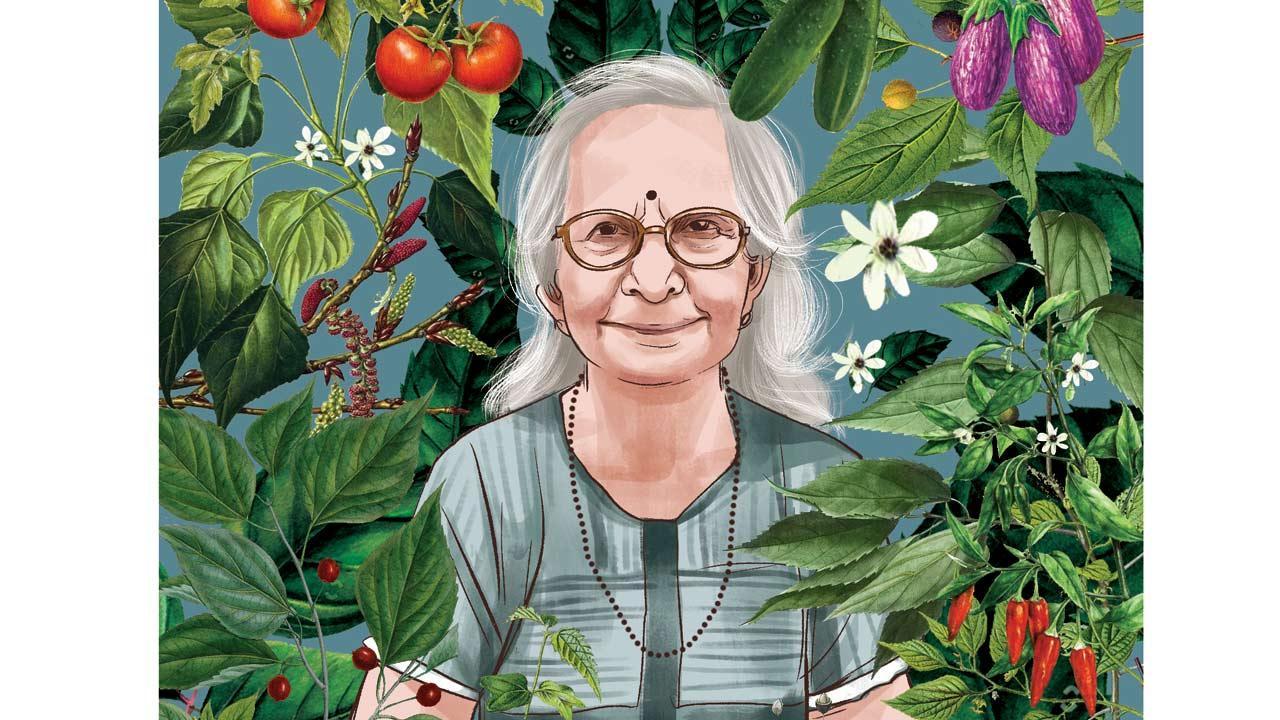Stillness is one of the riches the place offers in plenty. One of the high points of visiting Amma—other than the fabulous Saraswat meals—is the wind

Illustration/Uday Mohite
![]() After a lifetime of generally being a busy bee, it is immensely gratifying to spend time with Amma, and learning to savour stillness. She’s 95, so by default life slows down at that age, and gets pared to essentials. Bath, meals, temple, walk. That’s it, more or less.
After a lifetime of generally being a busy bee, it is immensely gratifying to spend time with Amma, and learning to savour stillness. She’s 95, so by default life slows down at that age, and gets pared to essentials. Bath, meals, temple, walk. That’s it, more or less.
ADVERTISEMENT
As followers of this column may know, she lives in a senior citizens’ home outside Bombay, in a cottage in the midst of a fruit orchard, that primarily caters to the Saraswat community. I visit her often—the grass is definitely greener there.
Stillness is one of the riches the place offers in plenty. One of the high points of visiting Amma—other than the fabulous Saraswat meals—is the wind. In Bombay, nobody really pays attention to the wind, unless it has lifted your skirt, blown off your socks from the clothesline or turned your umbrella upside down in a downpour. Here, right after a mini post-lunch nap, around 3.30 pm, it rushes in from the hill range that leads to Matheran—the hills are visible from Amma’s balcony. Now there are two kinds of trees—those that sing joyously with the wind, and those that play quietly with it. Coconut, casuarina and jambul trees sing with the wind. As their leaves rustle, there’s an audibly joyous sough, and the sun scatters diamonds through the coconut fronds as they sway and dance.
With stillness, you begin to pay more attention to small life all around, for whom you otherwise had no time. The cicadas in the trees, the ants who turn up in seconds to party on the brown circle left behind by your teacup: you can hear them protest, tea without sugar, what nonsense, after we have come so far, pooh! So I leave a pinch of sugar beyond the verandah, so the ant party can continue. It also goes with the most charming Tukaram abhang Amma and I are currently learning, introduced to me by my Kabir Festival friends Falguni Desai and Shruthi Vishwanath. Tukaram was a 17th century saint-poet who wrote abhangs (‘unbroken’) hymns in Marathi, mostly to Vithoba or Lord Vitthal of Pandharpur. “Lahanpana dega deva, mungi sakharecha rawa,” it goes (Lord, grant me little- ness, the ant is delighted with a grain of sugar).“
Another time, Amma and I were in the temple—there’s a beautiful Ram-Vitthal temple nearby. Amma sings bhajans there, often Hindustani classical songs, every morning and evening. Suddenly, a man got up, shooed and raced after a pup, who had run off with my shoes left at the entrance. Madhav Kini, the manager, was so kind: he said, “Don’t worry, Lord Dattatreya himself has visited us today,” referring to the god who is usually portrayed with four dogs, and seems like a Hindu equivalent of St Francis of Assisi, patron saint of animals.
Every morning I like to potter about in the veggie fields behind Amma’s house: they grow tomato, cucumber, brinjals, karela, chillies and more, according to the season.
Now and then, you see a snake, but if you simply wait a few moments, it hurries on its way, out of sight, and people have learnt to leave them alone. They are especially useful in keeping the rat population down, of course. I like to wear cheap, black, soft plastic shoes, so I can easily wash off the mud. Wearing them again in the evening, I was startled to find I’d squished something inside. It turned out to be a baby frog who had decided to nap inside its dark coolness. I was so sorry I may have hurt it, and left it near a drain pipe to transfer to another dark coolness.
Let’s just say I’ve made a lot more nice friends since I spent time with Amma.
Meenakshi Shedde is India and South Asia Delegate to the Berlin International Film Festival, National Award-winning critic, curator to festivals worldwide and journalist.
Reach her at meenakshi.shedde@mid-day.com
 Subscribe today by clicking the link and stay updated with the latest news!" Click here!
Subscribe today by clicking the link and stay updated with the latest news!" Click here!







